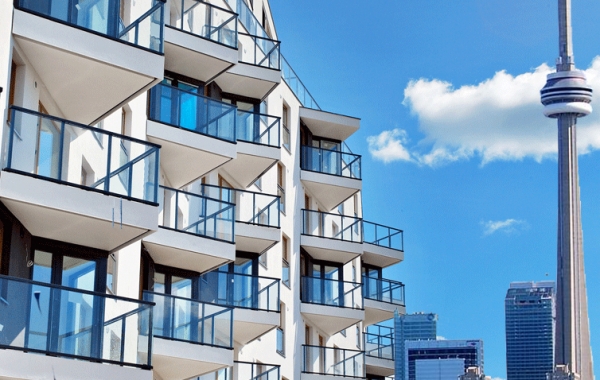Planning to Invest in Toronto Condo Market?

The COVID-19 crisis has resulted in an economic downturn, job losses – and for some, it may have prompted a sharp drop in the value of their existing assets and investments.
Many people have had to reflect on new ways to generate income to make ends meet and cover their mortgage payments. Others may be hoping to eke out some financial return from an existing but little-used recreational property or may be looking to buy an investment property that might be used to generate a source of income.
For each of these purposes, one possible option is jumping into the short-term housing rental market. This involves listing all or part of one’s home, condo or rental apartment on various internet-based platforms that advertise rental accommodation, such as Airbnb, Booking.com and Expedia, or through advertising in local media.
The Ontario government initially banned all such rentals during the early part of last summer, but that ban has subsequently been lifted.
The problem is that for properties in the City of Toronto, the rules around hosting, offering or providing short-term rentals are not as free-wheeling and flexible as they were previously, or as one might hope.
Here are some of the key points:
- There are new rules that came into force on Sept. 10, 2020.
Prior to offering listings, short-term rental operators must first register with the city and are subject to various administrative constraints. These arise under new regulations that cover rental arrangements of this type and aim to create a more even playing field by legalizing rentals that comply. (Note that those individuals who want to offer rentals of 28 or more nights at a time need not register with the city).
The annual registration currently costs $50 and can only be paid online via a valid credit card.
Each of the short-term rental platforms must obtain a license with the city before it can operate.
2. An owner or landlord cannot list a property on short-term rental sites – whether freehold home, apartment or condominium – unless it is his or her principal residence. When the unit being offered is a rental apartment and is already subject to a lease with a landlord, it will be important for the tenant to obtain the consent of the landlord first.
For these purposes, a principal residence is a “dwelling unit owned or rented by an individual person, either alone or jointly with others, where the individual person is ordinarily resident.” In plain language, it’s the residence where the rental host/operator actually lives, and is the address listed on his or her taxes, insurance policy and utility bills.
This stipulation around principal residency avoids the previous proliferation of “ghost hotels”, which involves buildings or units offered for short-term rental by an operator who does not live on the premises.
3. The new regulations also impose specific administrative obligations on those individuals who want to offer their properties for rent online. These include:
- Requiring him or her to display the city-granted registration number on all advertising and listings for their rental unit or building.
- Obliging short-term rental operators to collect a four-per-cent Municipal Accommodation Tax (MAT) from renters, for stays lasting 28 nights or less. Starting Jan.1, 2021, the short-term rental platforms like Airbnb are themselves obliged to collect and remit the MAT to the city. (Again, operators who only offer rentals of 28 or more days are exempt from this obligation).
Other specific restrictions: In addition to the mandates above, there are a few additional restrictions that pertain to specific circumstances:
- A short-term rental can comprise an entire residence, or up to three bedrooms within a principal residence.
- Secondary homes, recreational properties, investment properties and vacation rentals cannot be registered as short-term rentals in the city; they can only be rented out for longer-term periods of 28 days or longer.
- For those who want to rent out their entire Toronto home, there is a maximum cumulative duration: It can be rented for a maximum of up to 180 nights per calendar year. However, hosts can agree to rent up to three bedrooms in a unit for an unlimited number of nights per year.
Legally, short-term renters are something of a hybrid class of occupant. The question arises whether they are considered “tenants” under the provincial Residential Tenancies Act, and therefore entitled to some of the rights and protections that legislation affords.
Generally speaking, the short answer is no, especially if the short-term rental involves just a room or two within the home that is a principal residence. However, the situation is less clear for rentals of an entire home, particularly if the rental duration is longer than a month. In this kind of scenario, it may be wise to get legal advice on the various obligations that can arise for both the individual homeowner and any renters, and on whether the Ontario government’s suggested Standard Form Lease should be used.
There are many new and complex restrictions in connection with short-term rentals in Toronto. If you are thinking of putting all or part of your Toronto home on a listing like Airbnb, review the costs and other rules and regulations before hopping into the short-term rental business.

 Facebook
Facebook
 X
X
 Pinterest
Pinterest
 Copy Link
Copy Link
